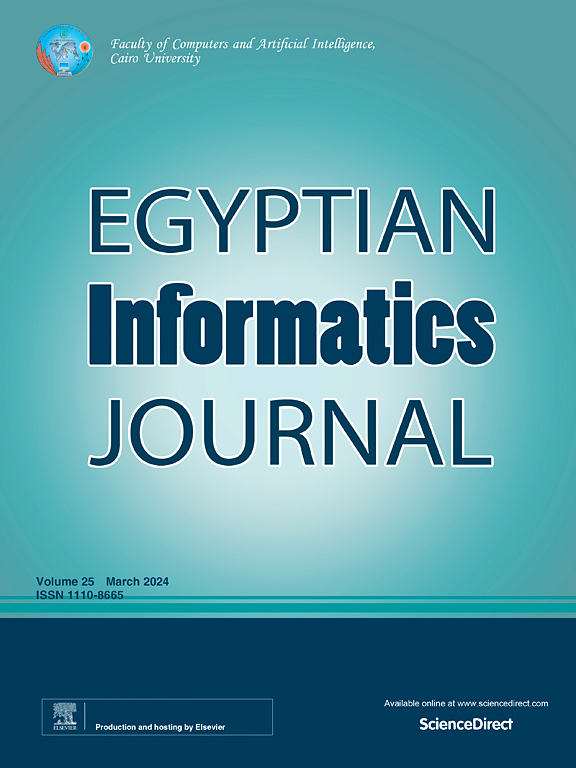Next-Generation energy Management: Particle Density algorithm for residential microgrid optimization
IF 5
3区 计算机科学
Q1 COMPUTER SCIENCE, ARTIFICIAL INTELLIGENCE
引用次数: 0
Abstract
This study presents an innovative approach to optimize energy management in residential microgrids, in light of the rising demand for energy and mounting environmental concerns. The research underscores the vital role of efficient energy management and responsive load control to improve energy efficiency and reduce consumer costs. To this end, a framework is proposed in which a power aggregator operates within a microgrid to manage residential electricity consumption. The primary goal of this framework is to minimize energy costs while considering subscriber preferences and the capacity limitations of the distribution network. The improved particle swarm optimization (IPSO) algorithm is employed to optimize energy management, resolve convergence challenges, and ensure user requirements are effectively prioritized. Integrating emergency, economic, and planned strategies provides cost savings, ensures grid stability, and enhances user satisfaction. The incorporation of Internet of Things (IoT) technology enables seamless communication, precise device control, and data-driven decision-making, empowering households to manage their energy loads more effectively and contribute to grid efficiency. Through scenario analysis, this research demonstrates the IPSO algorithm’s potential for significant cost reductions and improved grid stability. In Scenario 1, focused exclusively on affordability, numerical analyses present the total cost of electricity under different load conditions over three months. Scenario 2, also prioritizing affordability, highlights the impact of economic considerations on electricity expenses. Furthermore, Scenario 3 (80 % emergency + 20 % affordable) and Scenario 4 (50 % emergency + 20 % affordable + 30 % planned) showcase the potential for cost reduction through various priority combinations. These insights reflect the effectiveness of load management strategies facilitated by IoT technology. This comprehensive energy management approach lays a strong foundation for a resilient and adaptable energy infrastructure that meets society’s evolving demands.
下一代能源管理:住宅微电网优化的粒子密度算法
鉴于不断增长的能源需求和日益严重的环境问题,本研究提出了一种创新的方法来优化住宅微电网的能源管理。该研究强调了高效能源管理和响应式负荷控制在提高能源效率和降低消费者成本方面的重要作用。为此,提出了一个框架,在该框架中,电力聚合器在微电网内运行,以管理住宅用电。该框架的主要目标是在考虑用户偏好和配电网络容量限制的同时,最大限度地降低能源成本。采用改进的粒子群优化算法(IPSO)优化能源管理,解决收敛挑战,确保用户需求得到有效优先考虑。整合应急、经济和计划策略可以节省成本,确保电网稳定,并提高用户满意度。物联网(IoT)技术的结合实现了无缝通信、精确的设备控制和数据驱动的决策,使家庭能够更有效地管理其能源负荷,并有助于提高电网效率。通过场景分析,本研究证明了IPSO算法在显著降低成本和提高电网稳定性方面的潜力。在情景1中,仅关注可负担性,数值分析给出了三个月内不同负载条件下的总电力成本。情景2也优先考虑可负担性,突出了经济因素对电费的影响。此外,方案3(80%应急+ 20%可负担)和方案4(50%应急+ 20%可负担+计划中的30%)显示了通过各种优先组合降低成本的潜力。这些见解反映了物联网技术促进的负载管理策略的有效性。这种全面的能源管理方法为弹性和适应性强的能源基础设施奠定了坚实的基础,以满足社会不断变化的需求。
本文章由计算机程序翻译,如有差异,请以英文原文为准。
求助全文
约1分钟内获得全文
求助全文
来源期刊

Egyptian Informatics Journal
Decision Sciences-Management Science and Operations Research
CiteScore
11.10
自引率
1.90%
发文量
59
审稿时长
110 days
期刊介绍:
The Egyptian Informatics Journal is published by the Faculty of Computers and Artificial Intelligence, Cairo University. This Journal provides a forum for the state-of-the-art research and development in the fields of computing, including computer sciences, information technologies, information systems, operations research and decision support. Innovative and not-previously-published work in subjects covered by the Journal is encouraged to be submitted, whether from academic, research or commercial sources.
 求助内容:
求助内容: 应助结果提醒方式:
应助结果提醒方式:


